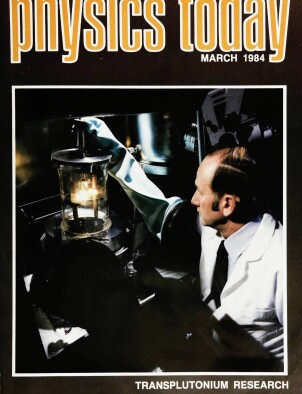A theorist’s philosophy of science
DOI: 10.1063/1.2916156
There is a temperamental difference among thinkers that has produced a spectrum of attitudes among them, in all realms of thought, throughout the history of ideas. This difference is the preference, in the one case, for the concrete over the abstract, and in the other for the abstract over the concrete. In science, this temperamental difference distinguishes experimentalists and theorists; in mathematics it distinguishes applied and pure mathematicians; and in philosophy it distinguishes empiricists and rationalists. Thus experimentalists are concerned with concrete apparatus in the laboratory, or concrete specimens in the field, while the nearest that theorists get to experimenting is the “thought experiment,” which cannot be performed in any laboratory. Similarly, although all mathematics is abstract, applied mathematics is less so than pure mathematics; applied mathematicians are concerned with mathematics that relates to the concrete world around them, while extreme pure mathematicians consider such concrete application unimportant at best and an adulteration of mathematics at worst.
This article is only available in PDF format
References
1. H. J. Robinson, Renascent Rationalism, second edition, Speedside Publishing, Fergus, Ont., Canada (1982)
More about the authors
Helier J. Robinson, University of Guelph, Ontario, Canada.




